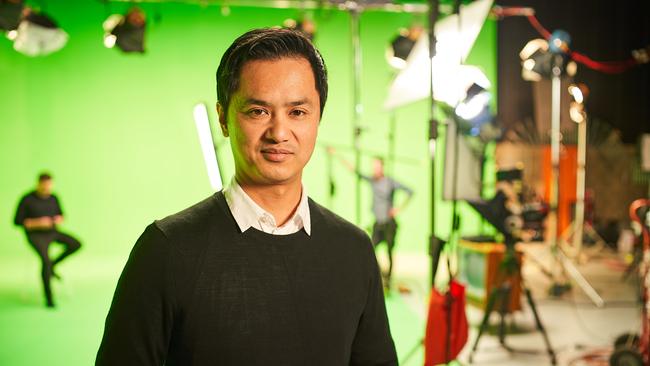Weary parents reveal horror of screen addiction
In a shocking admission, burnt-out mums and dads say life without their child would be easier than constantly policing gaming or screen use.

SA News
Don't miss out on the headlines from SA News. Followed categories will be added to My News.
Screen addicted kids are pushing parents to breaking point with some so burnt out they admit life without their child would be easier than constantly policing gaming or screen use, a leading Adelaide psychiatrist reveals.
It is a shocking admission by stressed-out mums and dads desperate for help, says Adelaide-based Dr Huu Kim Le, a leading authority on gaming disorder, often dubbed “internet addiction” or “video game addiction”.
“(Children are) not sleeping, punching holes in the wall and pulling knives on their parents because they’ve been told for the 100th time to get off (their device),” he said.
“There are children not going to school, who are not leaving the house … in extreme cases they are going into a coma or are becoming suicidal.
“We are seeing parents who are so burnt out, they are saying to us, ‘if our child suicides that would actually be a relief’.

“They are tired and sick of being the screening police, of playing the gaming detective … it is tearing families apart.”
It is thought as many as 100,000 Australian high school kids – enough to fill the Melbourne Cricket Ground – are currently affected by gaming disorder, which can be caused by
social media and internet use as well as video games.
Concerned practitioners met in Canberra during the week for the first Australian Games and Screens Alliance Symposium, aimed to “start a meaningful discussion about problematic screen use and gaming in this country”.
It included a presentation to politicians at Parliament House.
Mic Moshel from Macquarie University’s School of Psychological Sciences said research showed kids who became addicted to screens or video games displayed symptoms similar to those with a mild traumatic brain injury.
“There is significantly reduced cognition … the biggest deficits are in attention and focus,” he said.
“There is also a deficit in what we call executive functioning which includes problem-solving, higher-order thinking, reasoning and the ability to stop oneself from doing something – called inhibitory control.”
However, Mr Moshel said while kids with traumatic brain injury received treatment, too often those with gaming disorder didn’t, with symptoms snowballing.
“One of the key takeaways from our study was if those deficits are not recognised and remediated, they can compound over time … it can cascade into other areas such as memory, language, social skills,” he said.
Experts are calling for more funding for research as well investment in intervention and treatment services.
“When we look at what Australia is doing compared to other countries in terms of research, we are way behind,” Dr Le said.
“We don’t know enough about the new technologies and new problems that are emerging.”




